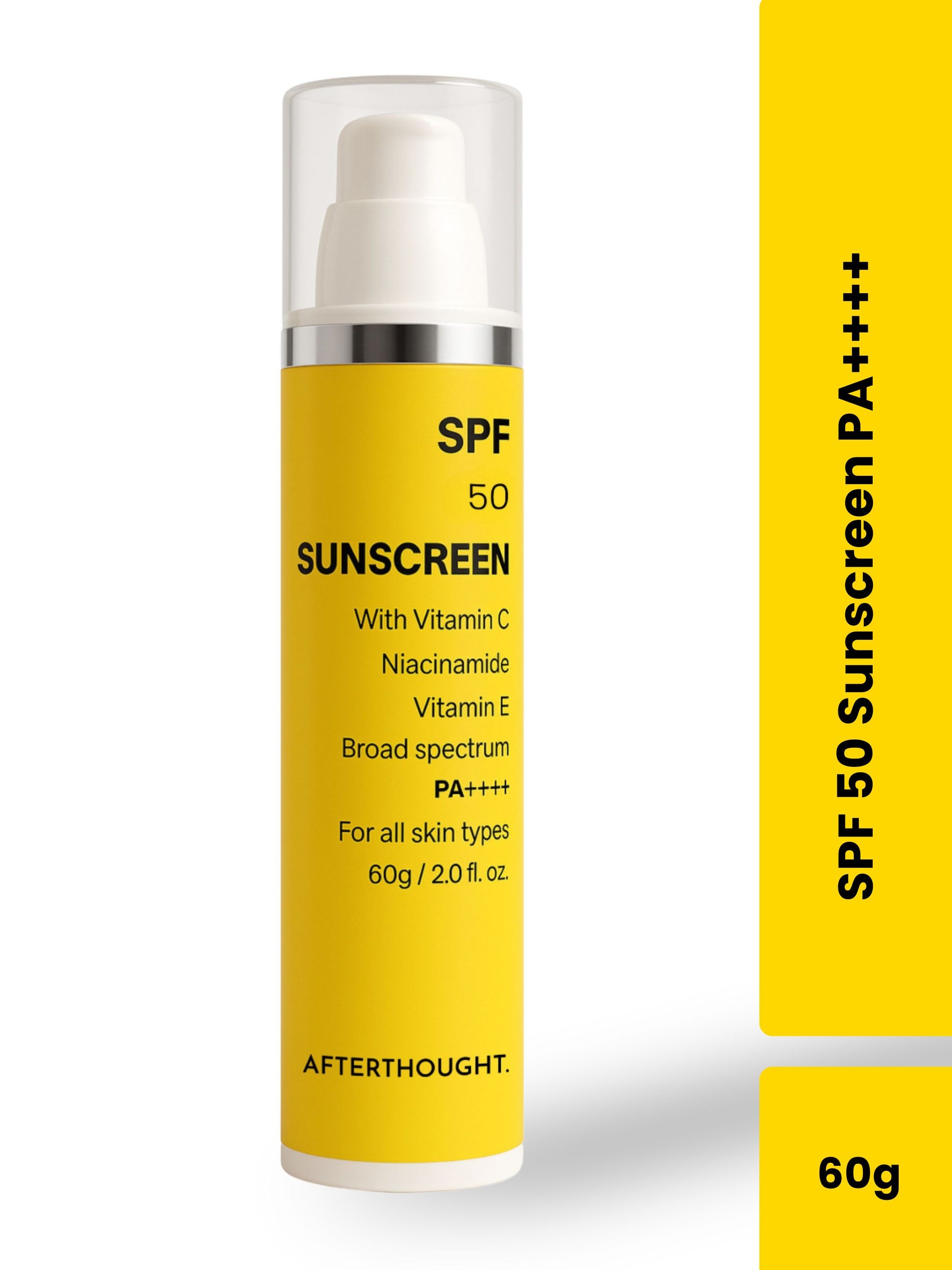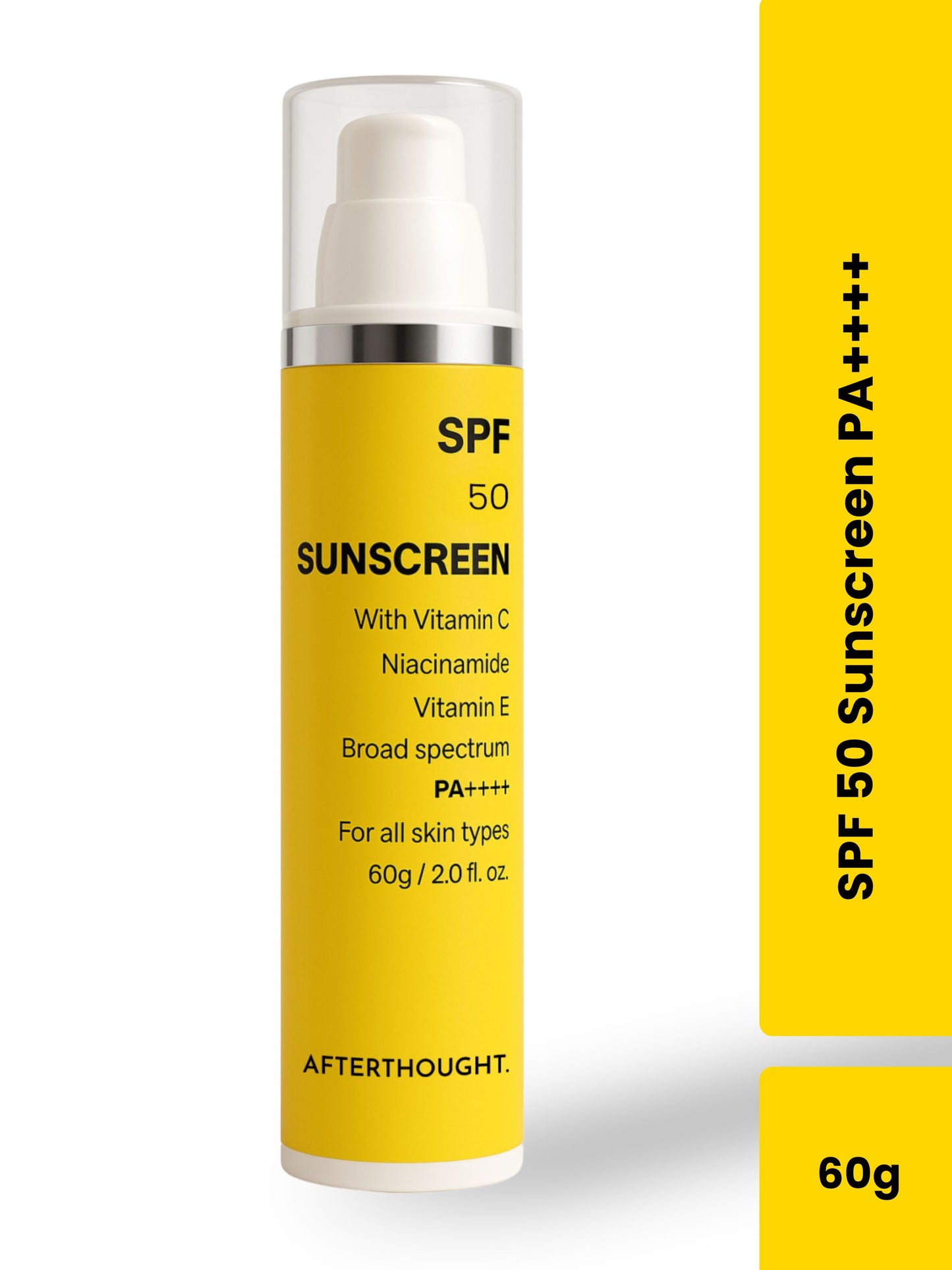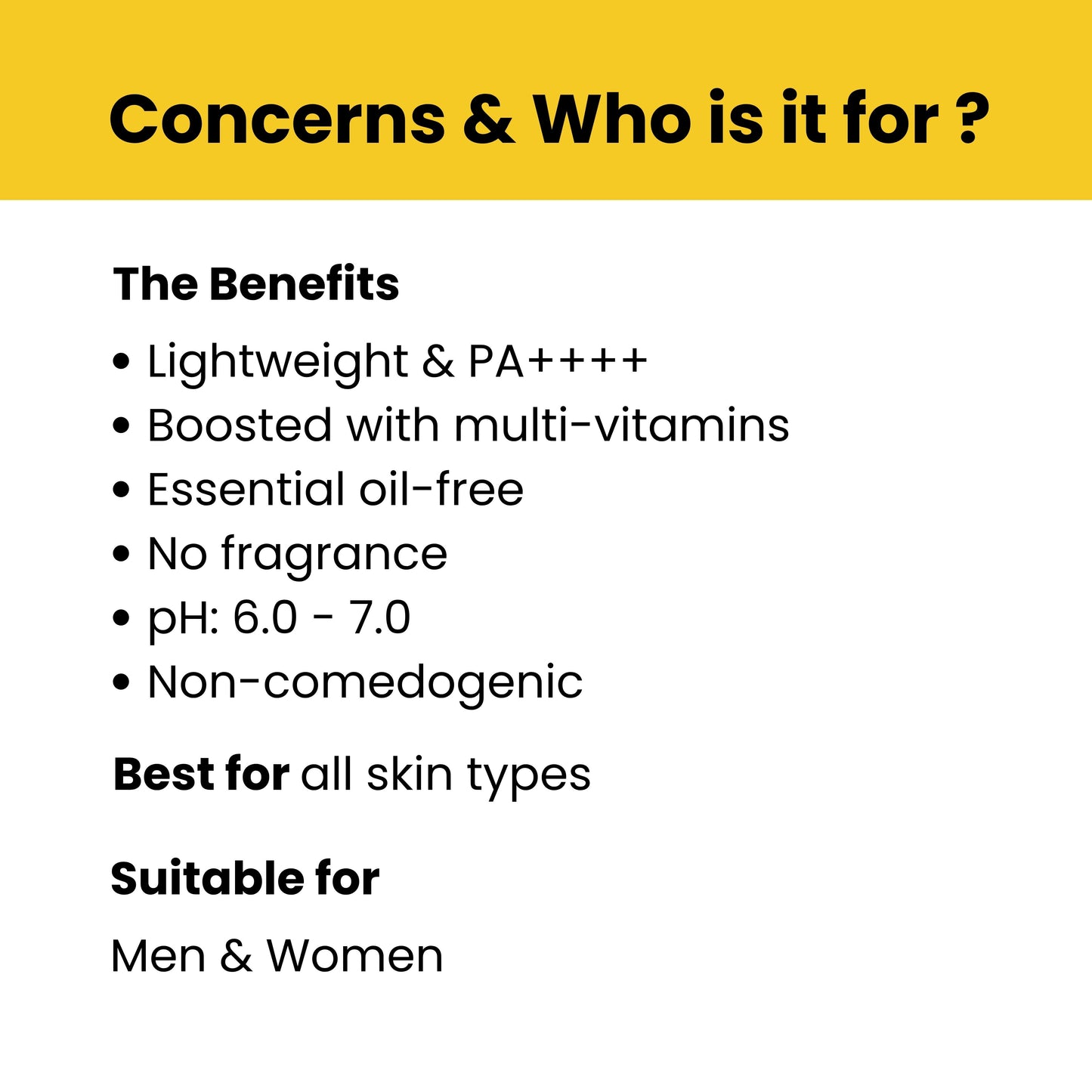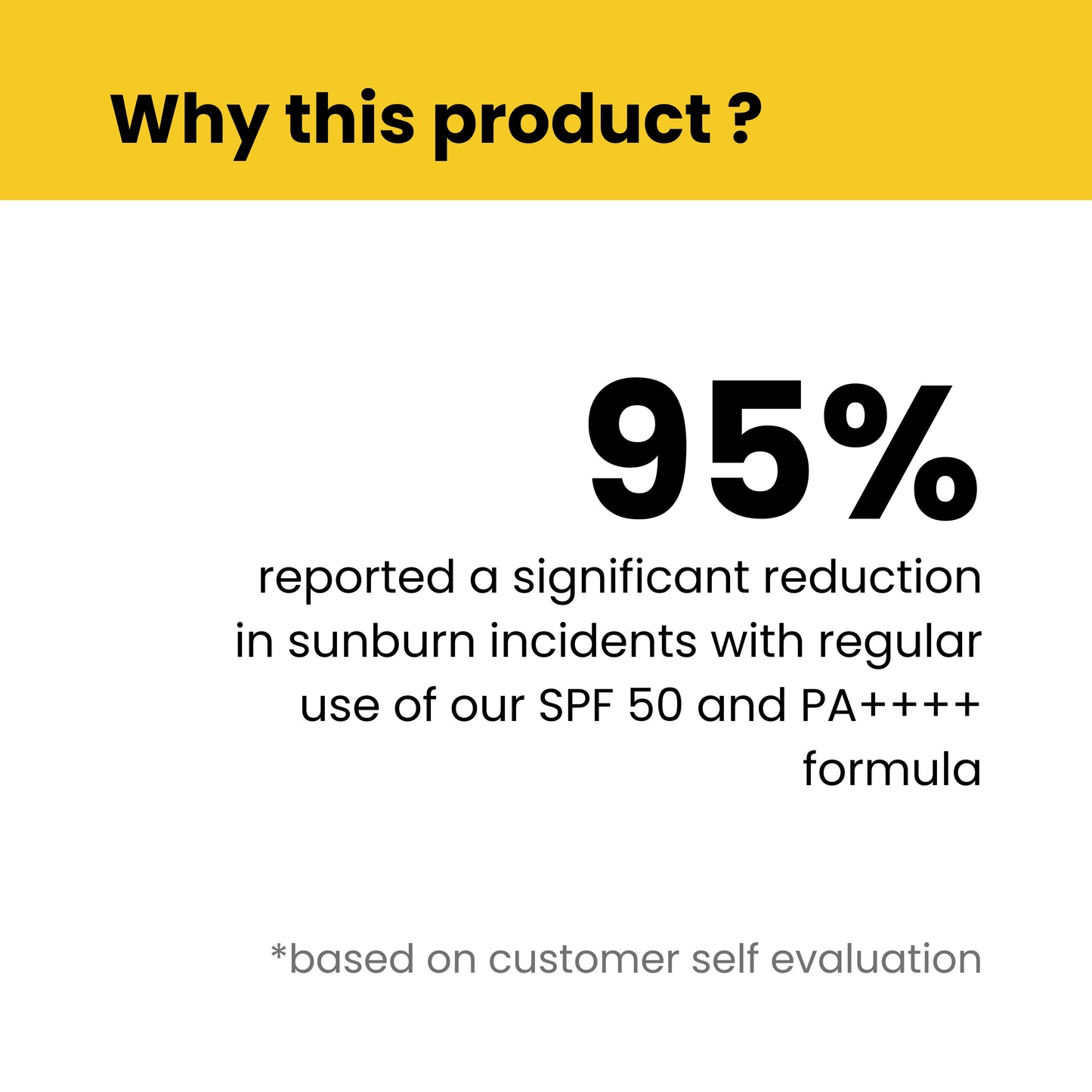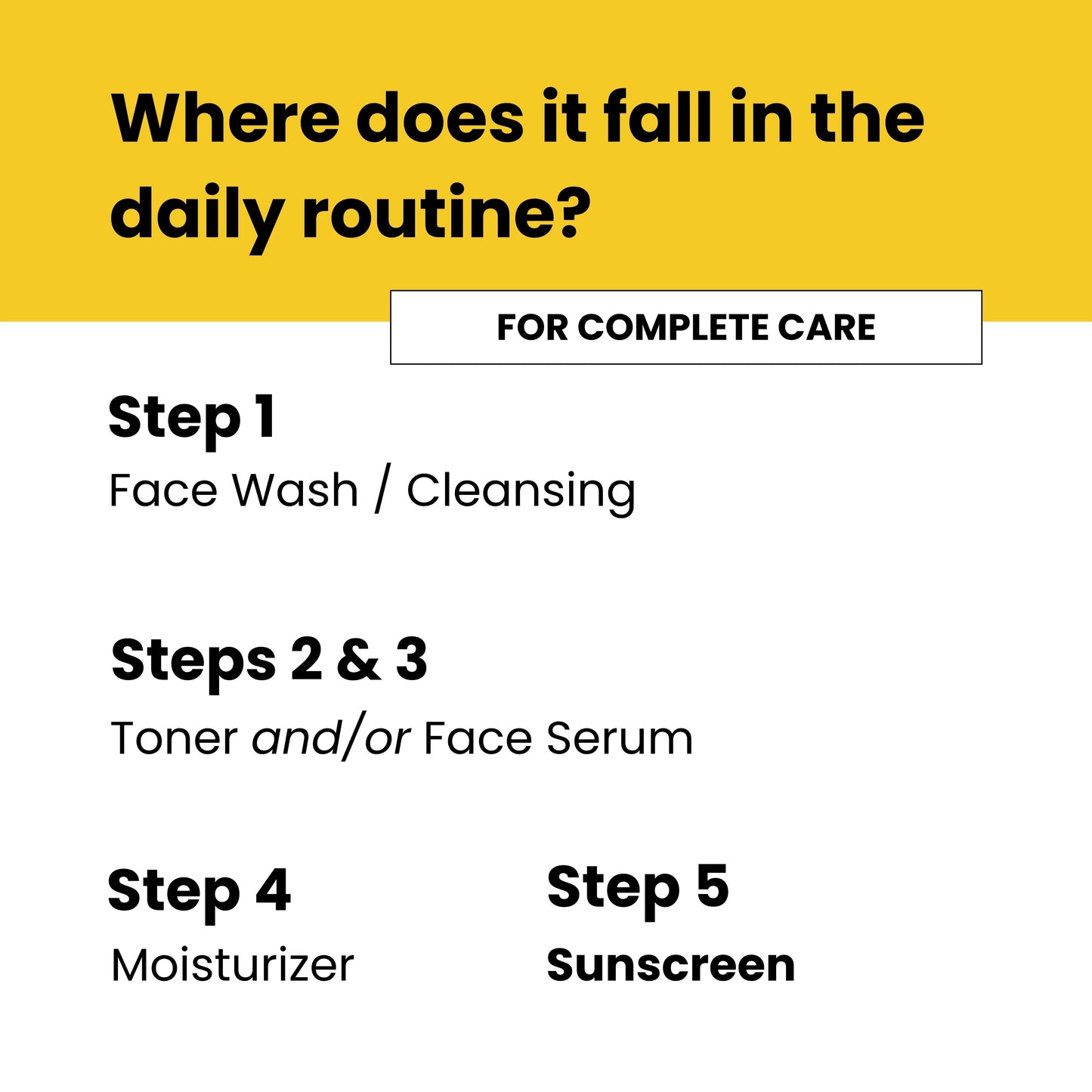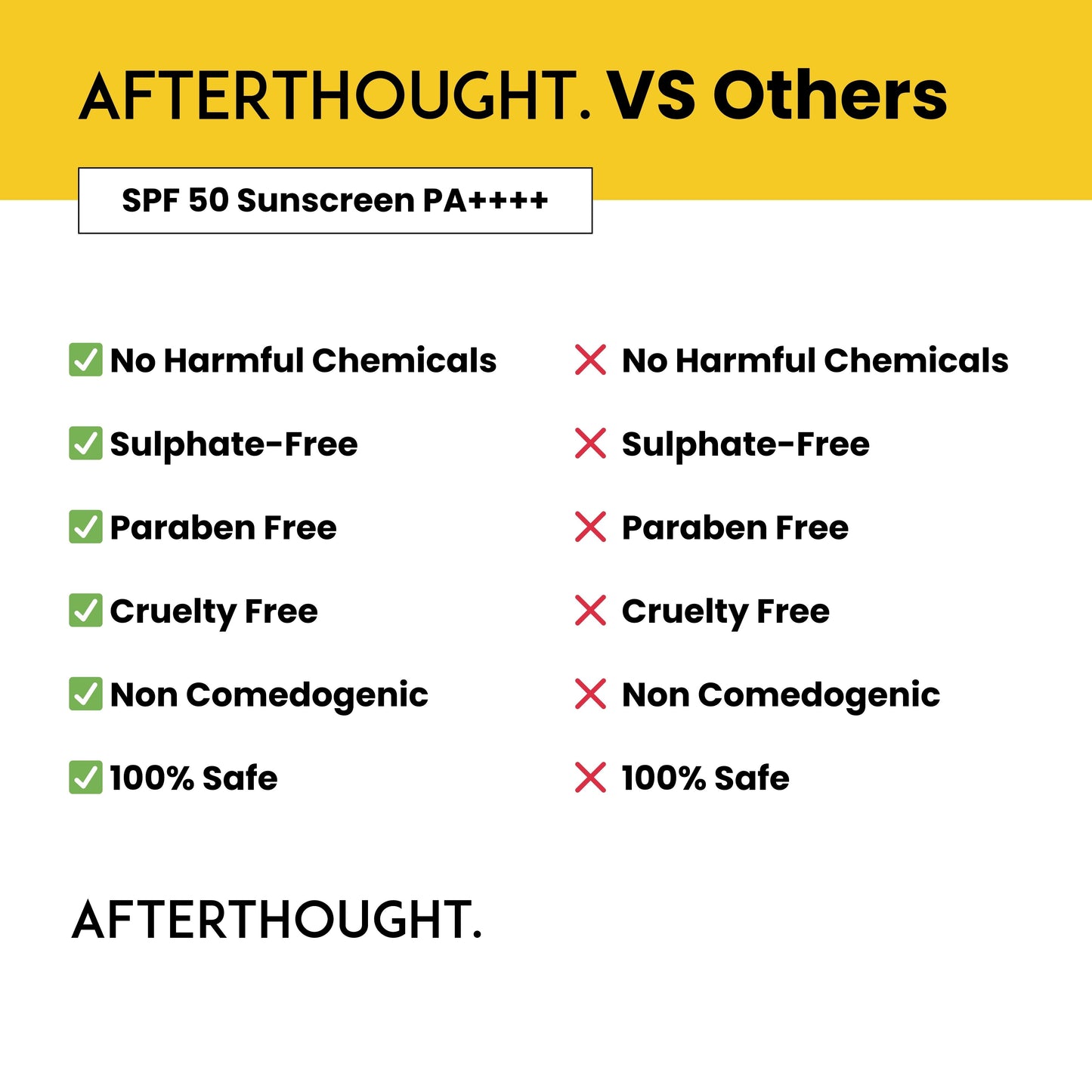What a Sunscreen Does To Your Skin?
Sunscreen has become an essential part of our daily skincare routine, particularly as awareness of the harmful effects of UV radiation has increased. But what exactly does sunscreen do to our skin? Welcome to Afterthought.
Let’s explore the multifaceted role of sunscreen and its impact on skin health.
The Basics: What is Sunscreen?
Sunscreen is a topical product designed to protect the skin from the harmful effects of the sun's ultraviolet (UV) radiation. UV radiation is divided into two types: UVA and UVB. UVA rays penetrate the skin more deeply and are primarily responsible for premature aging and wrinkling. UVB rays are the main cause of sunburn and can contribute to skin cancer.
Sunscreens work by incorporating active ingredients that either absorb, reflect, or scatter UV rays, thereby preventing them from penetrating the skin and causing damage.
Types of Sunscreens
There are two main types of sunscreens: chemical and physical. Chemical sunscreens absorb UV radiation through their chemical bonds and release it as heat, whereas physical sunscreens (also known as mineral sunscreens) contain active mineral ingredients like zinc oxide or titanium dioxide that sit on top of the skin and physically block UV rays.
How Sunscreen Protects Your Skin
Prevents Sunburn
Sunburn is a clear sign of UV damage. Sunscreen helps to prevent this by absorbing or reflecting the UVB rays that cause sunburn, thereby protecting the skin's outer layer.
Reduces Risk of Skin Cancer
Prolonged exposure to UV radiation increases the risk of developing skin cancer, including melanoma, basal cell carcinoma, and squamous cell carcinoma. By providing a barrier against UV rays, sunscreen reduces the likelihood of DNA damage in skin cells, which can lead to cancer.
Prevents Premature Aging
UVA rays are notorious for breaking down collagen and elastin in the skin, leading to wrinkles, sagging, and fine lines. Regular use of sunscreen helps maintain skin elasticity and reduces the signs of aging by protecting against these rays.
Prevents Hyperpigmentation
Exposure to the sun can lead to the formation of dark spots and uneven skin tone, a condition known as hyperpigmentation. Sunscreen helps prevent these changes by shielding the skin from UV-induced melanocyte activity, which is responsible for producing excess pigment.
Maintains Overall Skin Health
By protecting the skin from the harsh effects of UV radiation, sunscreen helps maintain the skin's overall health. This includes preventing the breakdown of essential proteins and lipids that keep the skin hydrated and resilient.
The Science Behind Sunscreen
The effectiveness of sunscreen is measured by its Sun Protection Factor (SPF). SPF indicates how long you can stay in the sun without getting burned compared to unprotected skin. For example, an SPF of 30 means you can be exposed to the sun 30 times longer than you could without protection before burning.
However, SPF mainly measures protection against UVB rays. Broad-spectrum sunscreens are formulated to provide protection against both UVA and UVB rays, ensuring comprehensive coverage.
Proper Usage for Maximum Protection
For sunscreen to be effective, it must be applied correctly:
- Apply Generously: Most people do not apply enough sunscreen, significantly reducing its effectiveness. A good rule of thumb is to use about one ounce (a shot glass full) to cover the entire body.
- Reapply Regularly: Sunscreen should be reapplied every two hours, or immediately after swimming, sweating, or towel drying.
- Don't Forget Key Areas: Commonly missed areas include the ears, neck, back of the hands, and feet.
- Use Daily: Sunscreen should be used every day, even on cloudy days or when indoors, as UVA rays can penetrate through clouds and windows.
Myths and Misconceptions
There are several misconceptions about sunscreen that need to be addressed:
- Dark Skin Doesn't Need Sunscreen: While darker skin has more melanin, which provides some protection against UV radiation, it is still susceptible to damage and skin cancer.
- Sunscreen Causes Vitamin D Deficiency: While sunscreen can reduce the skin's production of vitamin D, most people can still get enough vitamin D through limited sun exposure and diet.
- Waterproof Sunscreen: No sunscreen is completely waterproof. Look for water-resistant sunscreens and remember to reapply after swimming or sweating.
Check Now : Sunscreen SPF Calculator
Conclusion
Sunscreen is a crucial component of skincare, offering protection against sunburn, premature aging, and skin cancer. By understanding how it works and using it properly, you can significantly enhance your skin's health and appearance. Incorporate sunscreen into your daily routine to enjoy the sun safely and maintain radiant, youthful skin.
Also Read: How To Choose Sunscreen For Indian Skin?


